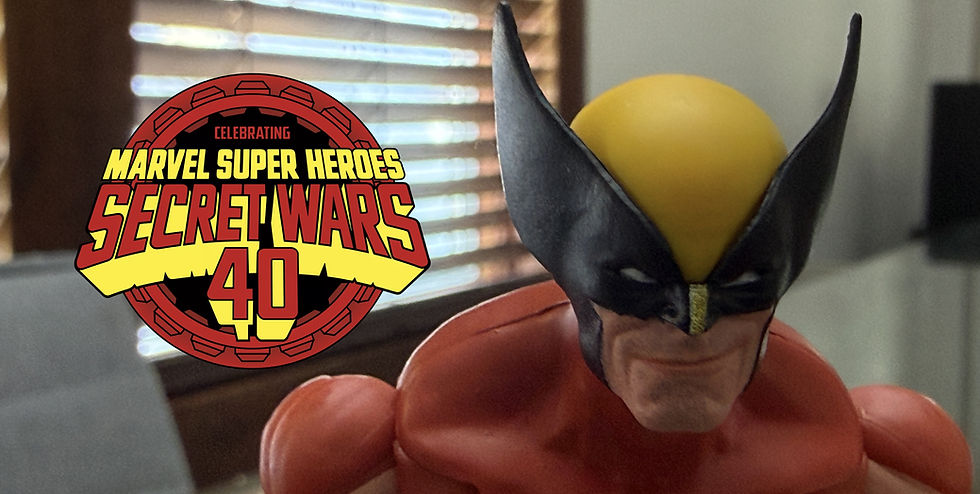A Look at... MARVEL Films CAPTAIN AMERICA: CIVIL WAR
- JC Alvarez

- Sep 8, 2016
- 5 min read

The MARVEL Films Cinematic Universe has established itself as the benchmark by which all the other superhero franchises would love to emulate. Having successfully set the franchise ball in motion beginning with Iron Man in 2008 starring Robert Downey Jr., it introduced the decisively positioned in-credit roll “stinger” that featured the cameo appearance of the coolest man in Hollywood, Samuel Jackson as espionage agent Nick Fury, enticing Downey Jr’s Tony Stark to think big! It’s been hit after hit, after sure-fire hit for Marvel ever since.
They were able to expand on the universe, that same year, when Stark penetrated film barriers and inserted himself (in-stinger) into The Incredible Hulk starring Edward Norton (who would be replaced by the significantly more-personable Mark Ruffalo), and continued to “sting” audiences in Thor (2011) and then again in Captain America: The First Avenger (2011). By the time Nick Fury made his way into the latter, there had been a definite succession and an initiative was introduced in 2010s Iron Man 2 that would guarantee Earth’s Mightiest Heroes would join forces.
No one could have expected The Avengers (2012) to have worked as spectacularly and as seamlessly as it did. Under the masterful direction of Joss Whedon, the film bridged four separate franchises into one indomitable force, with eight stars headlining none-the-less! The film was a feat of pure genius, and steering every phase of this runaway train was Marvel Film’s executive Kevin Feige, the mastermind behind mapping out the adaptations of the comic book universe to the big screen.
With The Avengers as a team now firmly established in the cinematic realm, the challenge then was how to remain consistent among each individualized chapter of the corresponding stand-alone franchises, while still engaging audiences that might not be following the larger scope of the narrative, and especially not allow these characters to become stale from over-use and over-exposure. By the time Marvel released Captain America: The Winter Soldier the proper follow-up to the previous film introducing star Chris Evans in the title role, any apprehension was out the door.
Marvel struck gold with the writing team of Christopher Markus and Stephen McFeely who really understood the characters and especially finding them a root in reality that made them translate from comic page to screen. Undoubtedly it was also the director’s of the film Anthony Russo and Joe Russo that brought an entirely authentic perspective to Captain America: The Winter Soldier. Between the film’s writers, its directing partners and producing team, the second outing for Captain America signaled an epic turn for the Marvel Films Cinematic Universe.
And this was just the beginning. Or rather, it was the close of one phase, before the beginning of the next. The events of the second gathering of Earth’s Mightiest Heroes The Avengers: Age of Ultron set up the inevitability that not everyone regards these super-powered do-gooders as heroes, but as loose cannons and a threat to national security. Tony Stark basically has implemented an AI technology that seeks to annihilate the human race. The resulting collateral damage, a small Eastern European village named Sokovia, is enough to send the government reeling!

When the Marvel Cinematic Universe continued the Avengers reunited in the third act of the solo film franchise Captain America: Civil War and the result was bombastic! The last Captain America feature did raise the stakes, turning the First Avengers against the establishment and revealing that the government agency that the Avengers were working for — S. H. I. E. L. D. — had been infiltrated by enemy agents from HYDRA, an off-shoot of the Nazi regime that has dedicated itself to subversion and subterfuge in order to conquer the world.
HYDRA uses Cap’s best friend and one-time sidekick Bucky against him, by turning the patriot into a mind-controlled menace, a super-assassin named The Winter Soldier, but as we quickly learn in the opening moments of Civil War Bucky wasn’t the only one. Now someone is out to discredit the Avengers, control the remaining super-soldiers and destroy the Avengers from within. When the world’s governments get involved, they demand that some checks and balances be put in place, and that Earth’s Mightiest Heroes submit to regulations.
This infringement on their civil rights does not sit well with all of the Avengers on the roster, especially Steve Rogers, Captain America — who perceives that the work they do is in the service of the greater good, and should not be put into the hands of outside interests. Rogers of course experiences some opposition from his teammates, most specifically Tony Stark, Iron Man, who feels they have been allowed to run amok unchecked long enough.
When terrorists agents are intercepted on a mission in foreign territory and innocent lives are lost, at the consequence of the Scarlet Witch’s actions, the Avengers — and Captain America — have little too no choice. The UN demands that they ratify the Sokovian Accords and that “super-heroes” register as agents of the world’s governments, but someone interferes with the inaugural meeting, and has attacked the forum making it look as if the Winter Soldier was responsible for the attack. The king of Wakandan is murdered in the assault and his son vows to avenge his father.
The Avengers are asked not to interfere in the apprehension of the Winter Soldier, but Captain America can’t let it go, and with the help of his ally Falcon and Agent Sharon Carter he is able to track down Bucky, but not before the military moves in and makes a fugitive of them all. The Winter Soldier is captured, and Captain America, Falcon and the Wakandan renegade The Black Panther who is revealed as the Wakanda Prince T’Challa, are all held accordingly. It isn't long before Captain America and Iron Man find themselves at either end of the table...
The resulting drama wrapped amidst a "The Manchurian Candidate" like dilemma facing our heroes pits Avenger against Avenger. On one side you have Captain America who is out to defend his friend at whatever the cost, but he also is protecting his civil liberty -- and his right to serve as an independent hero rather than an agent with an agenda. Iron Man doesn't see it that way and is working with the government to create accountability and a proper path to responsibility especially when lives are at stake. Both men are right -- in their own way, but can't find the common ground to come to terms, at least not while the Winter Soldier hangs in the balance.

The Russos have crafted a contemporary war story with all the complexities, and then made it doubly interesting replacing the archetypes with super heroes as our protagonists. Captain America: Civil War benefits from how realistically textured a world the Marvel Films have created, and that the mythology stretches across an enriched world that the audience has become invested in. It’s unfortunate that Warner Bros. which holds the brand titles pertaining to the competing DC Comics universe, wasn’t really able to mimic the style with their own attempt this summer with Batman v Superman: Dawn of Justice.
The largely more hopeful world that exists within the Marvel Films universe, outshines the dark and shadow cast across the scheme of BvS. Unlike their TV counterparts on The CW where the DC Television Universe is thriving across the primetime series Arrow, The Flash and the most recent spin-offs Supergirl and DC’s Legends of Tomorrow. These series are much more closely follow the formula of the Marvel Films, and it works!
Hats off to Marvel! Regardless of which side you’re on Captain America: Civil War is among one of the best super hero films of any franchise.






Comments